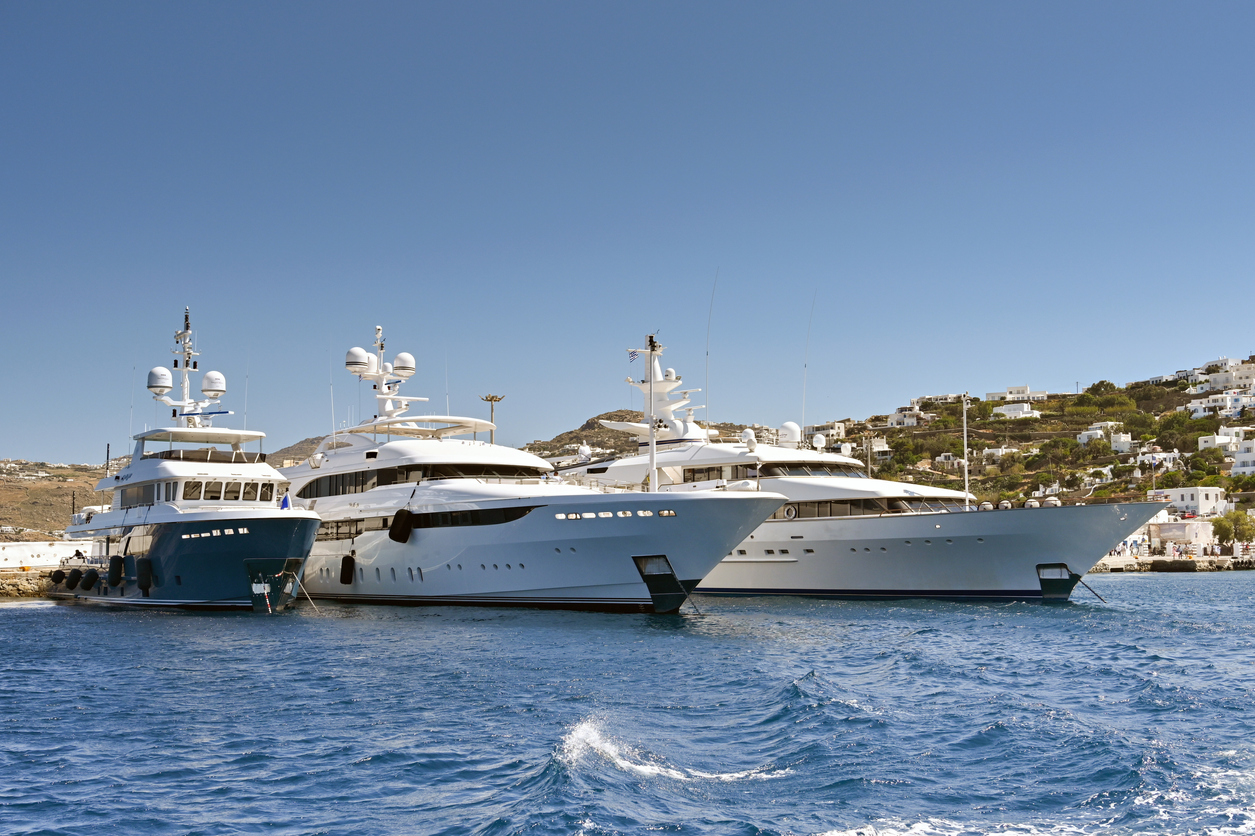
What is corporate yacht ownership and when is it used?
What is corporate yacht ownership and when is it used?
Corporate yacht ownership has been utilised for over 50 years but is still misunderstood by people both inside and outside the yachting industry. The perception of the use of a yacht-owning company or Special Purpose Vehicle (SPV) is for many seen simply to own the yacht but for owners and those in the industry it is an essential element of an efficient yacht structure. There are various types of entities used to own yachts, the most popular being limited liability companies and partnerships, with each having very distinct properties and benefits depending on the beneficial owner’s individual circumstances.
Just like an engine on a motor yacht
Engines need precise and accurate installation with mountings, drive connections, oils, electronics, and instrumentation all installed, matched, calibrated and checked. They require ongoing checks and maintenance as well as servicing, winterising etc. All these aspects need to be undertaken by people with the requisite expertise, not just in general engineering terms but specifically for the make and model being used to keep everything running correctly. Failure to do so can be catastrophic and very costly, both in terms of time and money.
A company has similar traits in that the type, jurisdiction, directors, funding, and shareholding arrangements need to be carefully considered at the outset. Each jurisdiction has its own rules and regulations that govern the formation and administration of companies, so it is important that a provider with expertise covering that territory is engaged.
With the yacht moving from country to country it is very important that the correct company is positioned and maintained to meet the differing requirements of each jurisdiction. The company also must be run correctly in such areas as mind, management and control, funding, record keeping and filings. Failure to meet any of the above elements can have equally catastrophic consequences for the beneficial owner and can be very expensive to rectify.
Corporate yacht ownership can appear at first glance to be an unnecessary cost and aggravation but establishing the correct structure initially can pay dividends in the long run.
Who provides companies?
The provision of companies and other types of SPVs is delivered by a corporate/company service provider (CSP) or a fiduciary company. A CSP does ‘what it says on the tin’ but a fiduciary such as Praxis can also provide trust services in addition to corporate services. The level of regulation varies from jurisdiction to jurisdiction, and this has caused confusion for owners and the yachting industry alike as to what regulatory requirements (especially due diligence) has to be provided to and maintained by the regulated business.
Jurisdictions such as Guernsey, Jersey and the Isle of Man historically have maintained high due diligence levels but with increasing regulation and transparency as a result of various global initiatives such as the Financial Action Task Force a more level playing field has emerged with very similar requirements now needed for all mainstream jurisdictions.
With over 50 years’ experience and a presence in the world’s leading international finance centres, Praxis has the expertise and multi-jurisdictional capabilities to establish and administer thought-through, beneficial and compliant structures wherever is most suitable for our client.
Benefits of Corporate Yacht Ownership
Privacy
Privacy is an important element for most yacht owners who want to use their yacht as a getaway from the hustle and bustle of everyday life. In the current world of social media and beneficial owner registers, however, one does not need to dig too deep to identify who the owner is behind most sizeable yachts, even if the shares of the company are not held by the beneficial owner directly but held by a nominee or another entity/structure. In this post-financial crisis world, the public perception of yacht ownership has also changed. The privacy provided through yacht ownership can help to insulate beneficial owners against potential intrusion.
Personal tax/Estate planning
Depending on the tax residency of the beneficial owner, the positioning of a corporate entity from a suitable jurisdiction can have an impact on the personal tax treatment/estate planning objectives of the beneficial owner. In all cases, it is important to discuss any potential yacht ownership structure with a beneficial owner’s personal tax adviser or accountants.
Yacht charter
Running a charter yacht is very similar to running a small business and with such a business comes fiscal obligations that cannot be met by an individual owner. VAT and fiscal registrations, charter licences, tax exemptions and the like cannot be obtained in the name of an individual, so a corporate entity is required if a beneficial owner wishes to charter out their yacht.
Ring fencing
In order to protect a beneficial owner’s other assets in the event of a claim not met by insurance, corporate yacht ownership limits such claims to the assets of the corporate owner. This is also why one often sees any other significant assets such as second yachts ultimately owned by the same beneficial owner being held under separate ownership.
Flag
Not everyone is entitled to flag a yacht at a given registry and each flag has its own qualifying criteria for both individuals and corporates. The solution for an individual who does not qualify in their own name for their flag of choice is to position a corporate owner from a suitable qualifying jurisdiction. The flag flown as well as the yacht name are two critical elements for many owners so corporate ownership can sometimes provide the solution to overcome such obstacles.
Expertise
The ownership and operation of a yacht can be highly complex so the provision of a corporate entity with directors possessing yachting expertise to look after the beneficial owner’s best interests can be appealing. As one of the only regulated services in our industry, there is a regulatory responsibility for directors to act in the best interests of the beneficial owner with dire consequences for failure to do so. This adds comfort and peace of mind to owners that they are in safe hands, especially appealing for those beneficial owners new to the yachting industry.
Time
For most owners, the yacht is their leisure pursuit and as such they do not wish to be bogged down with the day-to-day administration. By utilising a corporate owner and the associated directorship services of a provider with yachting expertise, beneficial owners can enjoy their often-limited leisure time with family and friends on board.
Is corporate yacht ownership right for me?
Corporate yacht ownership is not for everyone and there are many situations where owning a yacht directly in the name of the beneficial owner is the right choice. Each yacht structure needs to be considered on its own merits based on the beneficial owner’s aspirations and how they match with the benefits.
Professional advice should be sought at the outset as every yacht is unique and a one-size-fits-all approach often backfires. Better to ensure the correct structure is in place at the outset than try to unwind an incorrect structure with its associated components later as this can be a very painful, drawn out and expensive exercise.
Please note that this article is intended to provide a general overview of the matters to which it relates. It is not intended as professional advice and should not be relied upon as such. Any engagement in respect of our professional services is subject to our standard terms and conditions of business and the provision of all necessary due diligence. © Praxis 2023

